Ghosting the Patriarchy: Female Empowerment and the Crisis of Masculinity
Love, money and respect are the primary reasons for marriage. But two of these are losing their grip. Young women’s paychecks are catching up with men’s, and singledom has shaken off its stigma. Free to pursue what makes them happy, women are raising their standards.
In this new world of dating, Gen Z men sometimes find themselves ghosted, embittered by relentless rejection. And when the patriarchy gets left on read, it bites back with a vengeance.
Here’s what’s coming up:
A Unified Theory of Marriage
Why Are Marriage Rates Falling?
What Happens if Marriages Fall?
The Historical Rise in Single Mothers
As Women become more Selective, Men get Ghosted
East Asian women are rejecting self-sacrifice
Patriarchal Backlash
Social Media Filter Bubbles & Cultural Entrepreneurs
The Femisphere: Taylor Swift, East Asian literature, and mainstream media
Conclusion
Spoiler: featuring brand new graphs from the brilliant John Burn-Murdoch at the Financial Times.
A Unified Theory of Marriage
Through my globally comparative research, I identify three key motivations for marriage: love, money or respect:
RESPECT. In conservative communities, spinsters are eyed with suspicion and made to feel like failures. “When are you getting married?” pester a litany of Indian relatives. Chinese singles are derided as ‘leftover women’. In Catholic Ireland, unwed mothers were shamed and sentenced to forced labour in Magdalene laundries. In Mexico’s small towns, divorcees are still alienated. Fear of ostracism motivates widespread conformity.
MONEY. Financial considerations are especially salient for women - if they earn less, lack government support, and expect to mother. Childcare can be deeply fulfilling, but also comes at a hit to wages, so it makes sense to get decent insurance (i.e. marriage). Mothers may then opt to stay put - tolerating abuse and infidelity. To quote a traditional saying in Mexico, “Darlo todo por los hijos” (Everything for the children).
LOVE. If the society enjoys both economic growth and cultural liberalisation, then people only marry for one reason: LOVE! Soulmates join in matrimony to assure each other of monogamous commitment. Family and friends may join the festivities, but this is ultimately a celebration of love. He voluntarily sacrifices sexual variety because he cherishes a woman’s idiosyncratic personality. Companionate marriages are usually based on heartfelt appreciation, adoration and equality.
Stable unions will only remain high if at least one of these conditions it met - either the community remains conservative, women are still economically dependent, or there is a high supply of men with appealing offers of companionship.
Why Are Marriage Rates Falling?
By tracing the cultural evolution of every society in the world, I find that marriages are falling in places where the first two drivers are weakening:
Respect is no longer contingent on marriage and motherhood
Financial motives are weakening, due to either convergence in earnings, government welfare, or women not planning to mother.
Let’s start with Education and Employment
Skill-biased technological change rewards those with high skills. And, in the West, the least educated are disproportionately male.
In the UK, boys are almost twice as likely to be suspended, and they’re less likely to achieve the expected standard in English reading and writing (56% compared with 63% of girls).
While British boys historically performed better in maths, these gaps are closing – 72% of girls and 73% of boys met the expected standard for maths.
Globally, girls tend to significantly outperform in reading. If university admissions are determined by meritocratic performance, women will achieve higher qualifications.
Across many economies, men are less likely to complete college. The least educated men are often earning less than women, and are more likely to be economically inactive.
Now let me hand over to the great John Burn Murdoch.
Over in the US, 52% of men with high school education or less cluster in three sectors: manufacturing, construction or not working at all. Obviously, the composition of those with limited education has changed, but the trend is clear: the least educated men are ‘occupationally sticky’.
The least educated men have also struggled to move out of jobs vulnerable to automation.
Among younger generations, workplaces hierarchies have declined
Even if men graduate, they’re not becoming Don Draper (complete with corner office and doting secretary). Compared to previous generations, young men are not being promoted so quickly - perhaps because older workers are keeping their jobs. Thus at both ends of the educational spectrum, the financial gap between men and women is closing.
Young women are no longer entering offices as junior secretaries, ready to answer men’s beck and call. These scenes are strictly vintage:
This economic convergence between young men and women hits one of the three prongs of stable unions: material motives.
In societies that are economically developed and culturally liberal, women can earn a decent salary and live alone without stigma. Absent the pressure to marry and make babies, the urge to find a husband is thus at an all time low.
Economists, ever eager to exploit exogenous shocks, find that when women gain economic security (such as through public pensions or lotteries), they are more inclined to divorce. We should thus expect more female singles in communities with small gender gaps in earnings and/or generous public welfare.
As young men and women’s salaries converge, men’s financial offer becomes weaker. Instead, women select more based on personality. If she can manage independently, why endure a boyfriend’s infidelity or refusal to do the washing up?
Networks are equally critical, since we all seek peer approval. If all one’s friends are getting hitched, one might feel like a ‘loser’, struggling to find a +1, desperate to catch the bouquet. Whereas if everyone is single, the shame disappears!
Compare and contrast these two images:
What happens if Marriages Fall?
The decline in marriage rates has two primary consequences: a rise in single motherhood and ‘ghosted’ men.
The Historical Rise in Single Mothers
Since the 1960s, the US has seen rising rates of single motherhood, especially among women who do not complete high school.
Melissa Kearney finds that children of single mothers (especially sons) often have lower social mobility. They are more likely to remain in poverty and less likely to graduate from college. Financial resources, supportive parenting, reading together, and warmth confer massive inter-generational benefits. In all four respects, single mothers are often disadvantaged. Shattered and stressed, they struggle to match “the two parent privilege”.
To understand declining rates of marriage, I have learnt a great deal from the brilliant Sociologist Elijah Anderson. In “Code of the Street” (2001), he emphasises that women are NOT becoming opposed to the institution of marriage:
Many high-school educated women want to marry, they envy happy weddings, but decry the dearth of “marriageable men”.
Last year, I undertook my own qualitative research in Montgomery, listening to waitresses, cooks, laundromat workers, and taxi drivers. All emphasised low trust. Over and over, they detailed past experiences of disappointment (sometimes involving infidelity). This hurts trust, which in turn weakens commitment. Relationships fracture and break.
So it’s not that America’s working class is anti-wedding. Rather, as male and female incomes converge, women can be more selective. And, a crucially unrecognised fact, is that this holds right across the wealth distribution.
As Women become more Selective, Men get Ghosted
Dating apps are the subject of endless complaints. AI ‘wingmen’ are now being introduced to aid conversations. But is tech really to blame?
In the US, college educated women’s rates remained high - at least up until the cohort born in 1980. They either married men who were college-educated, or non-college educated but high-earning. Non-college educated women then faced a shortfall, only lower-earning men. Among this latter group, marriage rates fell.
Western women also became more selective. If she has a decent job, cultural freedom and a world of entertainment at her fingertips. When I ask why conversations break down, young women always tell me ‘he was dull’. Bored and unimpressed, they simply move on. To capture her attention, he needs to be as enthralling as the suave cast of Bridgerton. As a New Yorker remarked,
“Women only want men who are entertaining!”
While 6’5 guys in finance still rule the roost, middling males are struggling.
Through my globally comparative research, I realise that these same trends apply in Montgomery, San Francisco and Seoul.
East Asian women are rejecting self-sacrifice
Young Korean women are increasingly rejecting marriage. Having seen their own mothers toil away in the kitchen for Lunar New Year only to be barred from rituals honouring their husbands’ dead ancestors, many young women are saying ‘no’.
Right across East Asia, female graduates increasingly seek equality, status and economic independence. Back in 2016, half of Korean single women said that ‘marriage was not necessary’. A mainland Chinese blogger heralded Hong Kong as a ‘paradise for women’, because so many pursue their careers and happily remain single.
If marriage and parenting entails female drudgery, while husbands climb to the highest echelons (entertained in hostess bars), you can understand women’s reluctance.
Lyanne Nakano suggests that in East Asia’s big cities, young educated women want loving marriages, but aren’t tempted by the available offers:
“A man would expect that a wife will spend more time looking after the family… I have lots of creativity and I don’t need a boring husband” (38 year old Jing in Shanghai)
“In the past, women felt they had to marry but not now. We don’t need to rely on anyone. We can just do things ourselves” (Bianca, 34, Hong Kong).
Across the socio-economic spectrum, Hong Kong women are very aware of ‘bad marriages’. Low-income women also expressed reluctance, as they didn’t want to be with a man who might be abusive, unfaithful or addicted to gambling.
Simply put, women don’t want to marry someone who treats them poorly.
Patriarchal Backlash
Given women’s growing reluctance and uneven sex ratios, Korean men now face a rough dating market. A far cry from patriarchal authoritarianism, many face rejection and loneliness.
Meanwhile, feminists are rallying against abuse, spycams and deep fake pornography. Decrying shame and stigma, they chorus “Not your fault”. Some feminist organisations are seen as much more aggressive and confrontational, e.g. Megalia emasculating emoji. All this is can be seriously grating - for men accustomed to subservience and collective harmony.
Ghosting and activism may have triggered patriarchal backlash. Immediately after MeToo protests, South Korean young men rallied for an ‘Anti-Feminist President’. Within the world of gaming, there were vigilante woman-hunts to root out feminists. Gaming company Nexon fired a voice actress because she owned a shirt saying “Girls Do Not Need A Prince”. Male feminists are also attacked - Somi (who created Replica) was apparently subject to vitriol after he liked and retweet support for sex education in schools and offices. Anti-feminists have sought to root out and bully anyone with these subversive inclinations.
In recent weeks, Seoul has seen huge protests over men’s conspiracies to create and share deep fake pornography. Online chatrooms have become breeding grounds for misogyny, where men share violent fantasies and revel in degradation.
“Brother, this is a masterpiece”, they cheer.
Videos are actually marketed as showing women whose lives were ‘ruined’. If she killed herself due to depression, it is a bonus. One Telegram chat room, created to share deep fake pornography, has 220,000 members.
This misogyny is fuelled by resentment of women’s refusal to play ball.
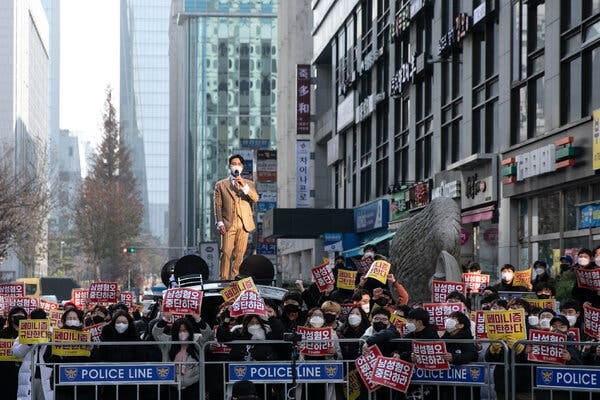
Social Media Filter Bubbles & Cultural Entrepreneurs
Resentment also crops up in my conversations with men in the West. It’s not all men, and it’s not a monolithic complaint. But there is a growing culture of perceived unfairness - whether that’s due to dating or ‘DEI’ (‘Diversity, Equity and Inclusion’). These frustrations find an outlet online, where echo chambers amplify and legitimise out-group animosity.
Culture isn’t reducible to individual or place-based characteristics. It’s always developed collectively, as charismatic cultural entrepreneurs leverage availably technologies for ideological persuasion.
Social media, it seems, exacerbates our darkest instincts. Humans are drawn to content that evokes strong emotions - negativity, out-group hostility, and moral outrage. Experimental data suggests we’re easily triggered by moral emotions, finding satisfaction in opponents’ misfortunes and vilifying adversaries.
A prime example is the ongoing debate over who should pay for dates. "If women want equality, they can share the tab!" is a refrain I hear repeatedly from young men. As a dispassionate observer, I view this as a matter of personal preference - some individuals enjoy traditional gender roles, and the dating market allows for self-selection. However, on male-dominated filter bubbles this is hyped into another instance of sexist discrimination, where yet again men are disadvantaged.
Viral clips, like one showing a woman refusing to exit a car at the Cheesecake Factory ignite online firestorms. Whether genuine or fabricated, such content fuels a narrative of women’s alleged greed and materialism, further legitimising anti-female sentiment.
 Tiktok failed to load.
Tiktok failed to load.Enable 3rd party cookies or use another browser
Charismatic cultural entrepreneurs harness these new technologies to sell their stories. Andrew Tate is a prime example. His image as a multi-millionaire businessman, enjoying his pick of bikini-clad acolytes, appeals to many young men! Tate’s wealth and confidence add to the charm, earning him favourable ratings.
But Tate isn’t just an exogenous shock, single-handedly brainwashing innocent young men. Rather, he’s surfing a wave of frustration, turbo-charged by out-group animosity and algorithms that fire-up sensationalist content for clicks.
20% of young American men with high school education or less agree that ‘women seek to gain power by getting control over men’.
The Femisphere
In the US, women have ascended to influential positions in journalism, publishing, and entertainment. By 1997, women held the majority of editorial and sales executive positions at Time Warner. The turn of the millennium saw women claiming 50% of US book copyrights, and by 2020, they authored the majority of new books.
‘Parks and Recreation’ was prime-time feminism, celebrating a diverse and egalitarian workplace in small-town Indiana. Leslie Knope famously championed ‘ovaries before brovaries’. Not once was a woman put down for being assertive, instead co-stars rallied behind her quests for leadership.
In the world of music, female song-writers have achieved phenomenal popularity with messages of affirmation and independence. Miley Cyrus’s song “Flowers”, a defiant celebration of singledom, was Spotify’s most streamed track, worldwide.
Taylor Swift
ERAs is the highest grossing tour of all time. Thousands of women have flocked to see their heroine, who stood up to the male-dominated music industry and re-recorded albums under own name.
Dancing in the wings is her alpha-male champion. Lyrically, she celebrates defiance:
“He wanted a bride I was making my own name.” — “Midnight Rain”
“I go on too many dates, but I can't make them stay. At least that’s what people say, that’s what people say. But I keep cruising.” — “Shake It Off”
“I got smarter, I got harder in the nick of time.” — “Look What You Made Me Do”
“I'm so sick of them coming at me again, 'cause if I was the man, then I'd be the man.” — “The Man”
“Baby I could build a castle out of all the bricks they threw at me.” — “New Romantics”
“Don’t you worry your pretty little mind. People throw rocks at things that shine.” — “Ours”
“Never be so politе you forget your power.” — “marjorie”
Politically, the self-proclaimed ‘childless cat lady’ has aligned with LGBT, IVF, abortion and Kamala Harris. Her female fans rally in applause, while Elon Musk and Donald Trump retaliate with aggressive misogynist backlash.
Ultimately, it’s a clash of values.

East Asian feminist literature
East Asian women have also been re-writing the script - challenging expectations of subservience. ‘Kim Ji-Young, Born 1982’ topped Asian literary charts with its unflinching portrayal of Korea’s everyday sexism, resonating with women across the region.
Mainstream media highlights sexism
David Rozado shows that after 2015 news media increasingly reported on gender and racial bias. It’s precisely this period when Gen Z women came of age.
Universities are increasingly progressive
As women disproportionately enrol in higher education, they join progressive communities. David Rozado shows there has been a groundswell of academic publishing on prejudice. Professors are increasingly researching and highlighting racism, sexism, homophobia, transphobia and Islamophobia.
This onus on ‘diversity’ is a distinctly different social environment than a typical job for a man with only high-school education - e.g. a warehouse or construction site, full of other lads.
Conclusion
Young women are increasingly joining progressive universities, earning on par with male peers, and feeling free to pursue hedonistic pleasure. Singledom is no longer shamed or stigmatised. So why tolerate guys who shirk the washing up, send tedious texts, or otherwise fail to please..?
The age of female acquiescence is waning, supplanted by an era of female freedoms.
Importantly, this shift is zero-sum. Men are losing their patriarchal privileges, and it’s leaving a nasty aftertaste. Dating has become more competitive, breeding frustrations validated by cultural entrepreneurs on social media and podcasts.
Obviously, a lack of matches has major implications for fertility.
P.s. bravo and thank you to my wonderful friend John Burn Murdoch!!












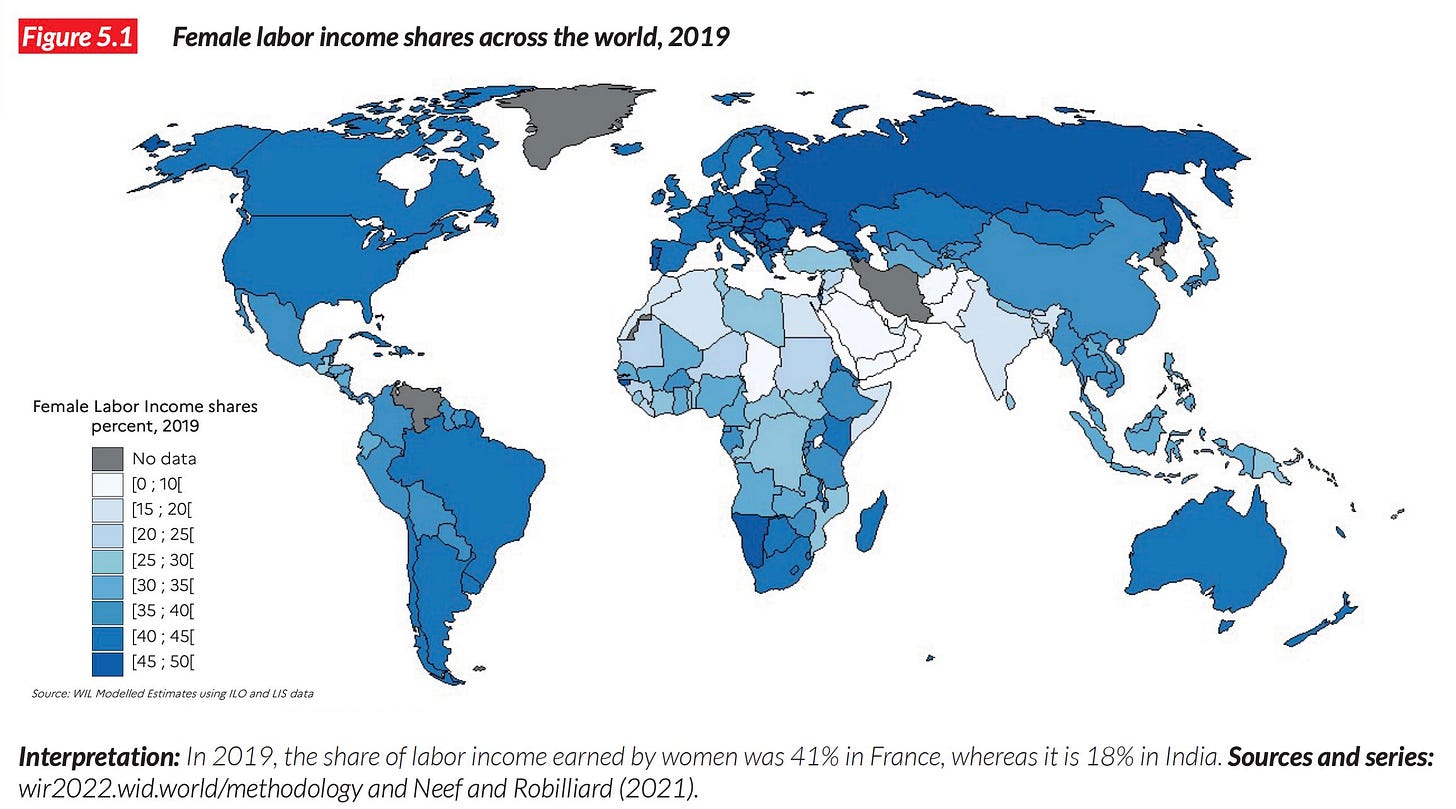
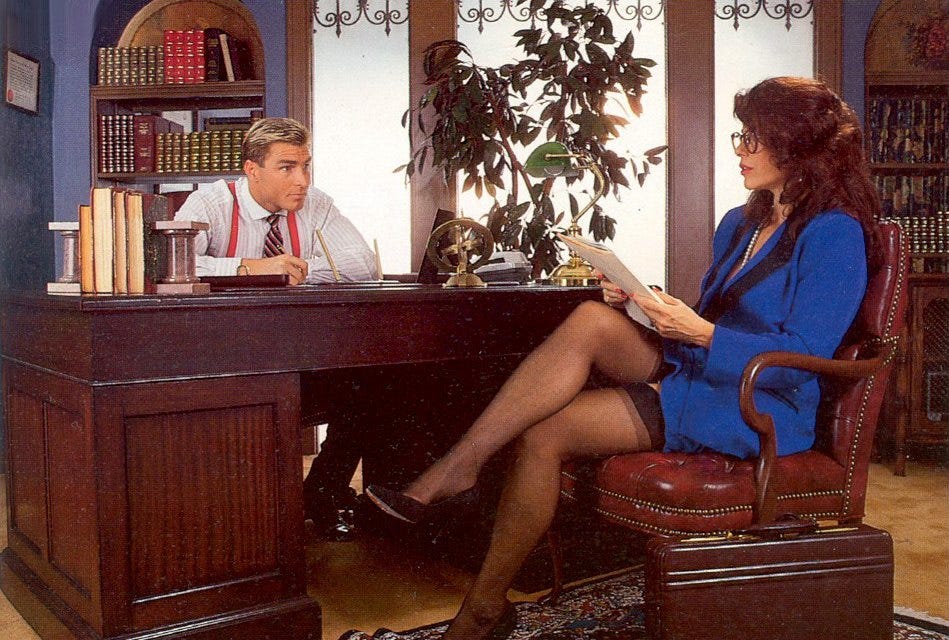


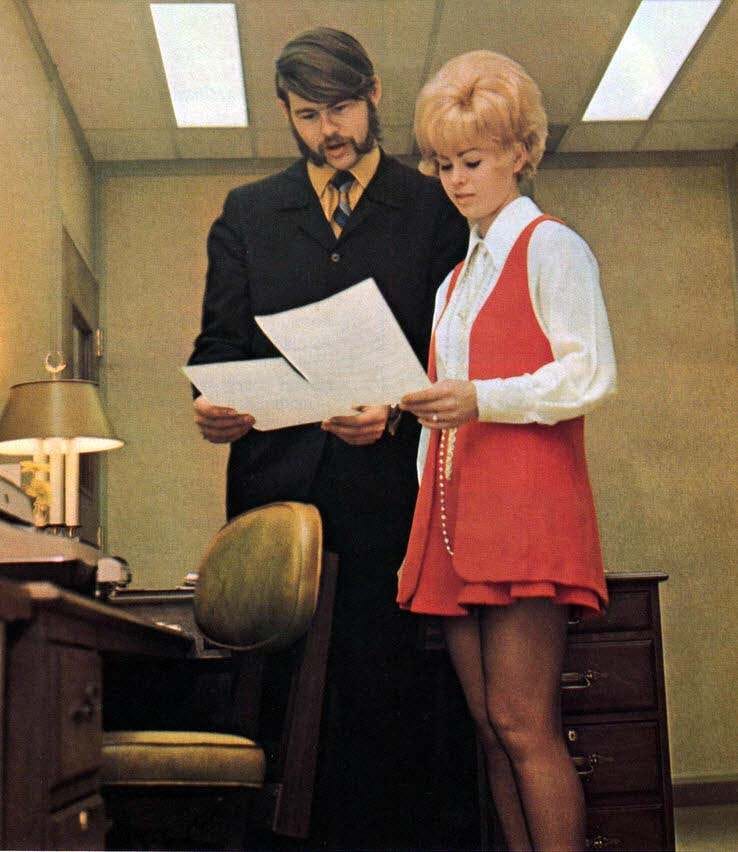

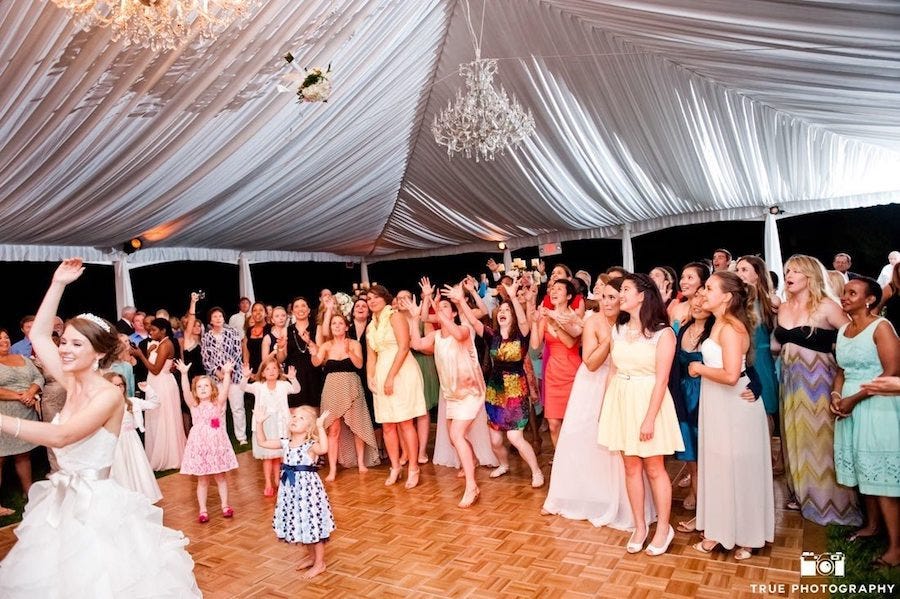


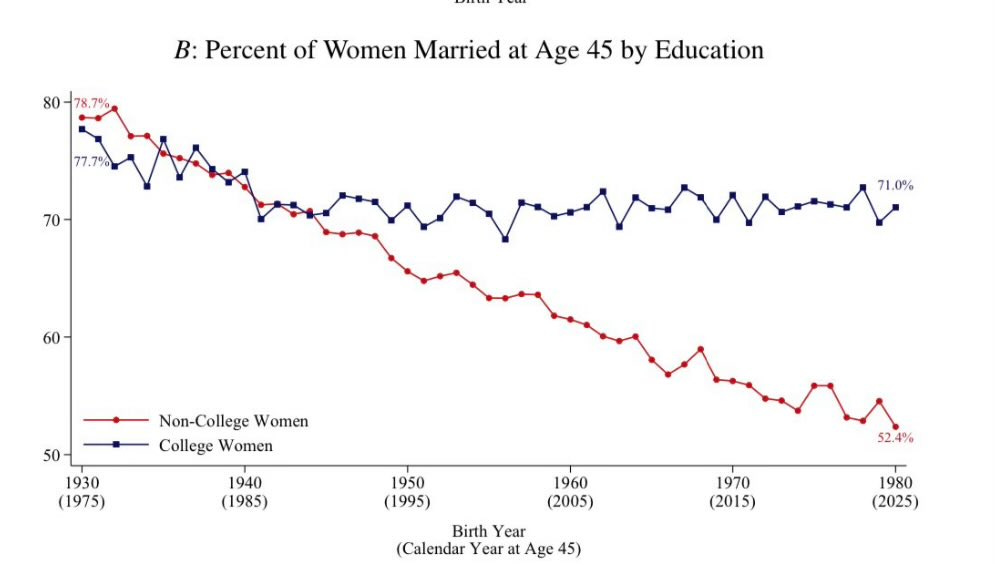
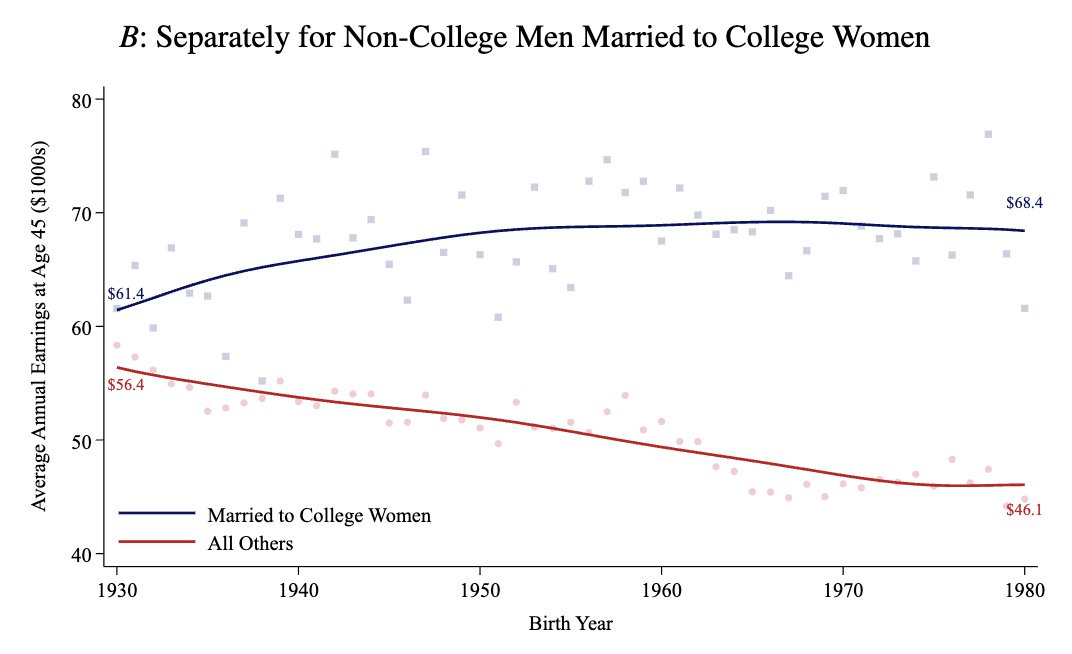
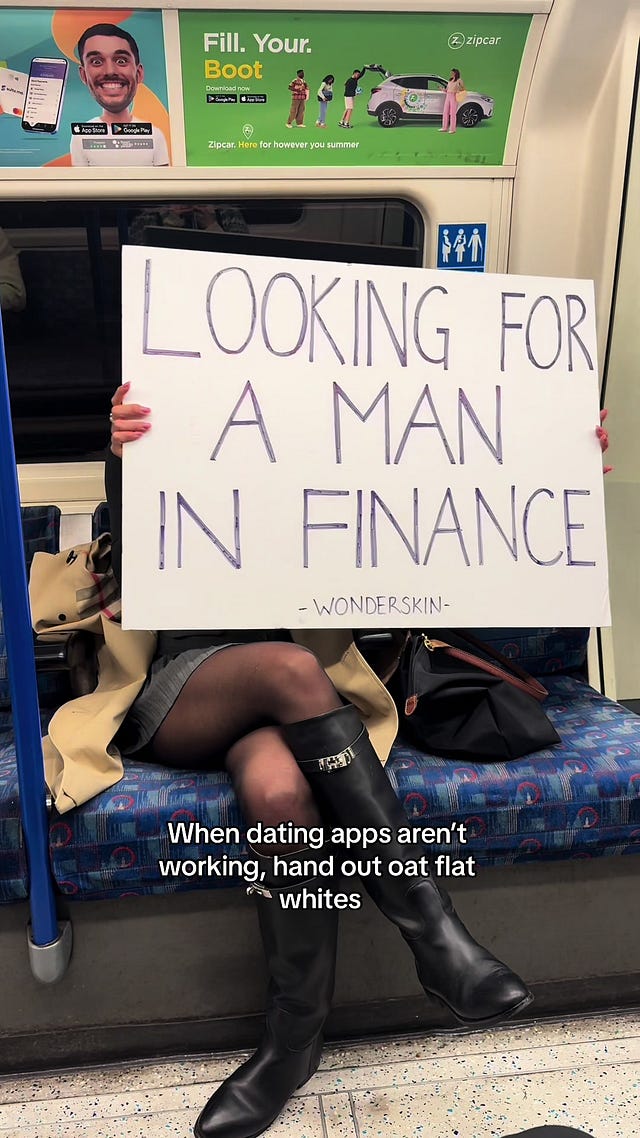





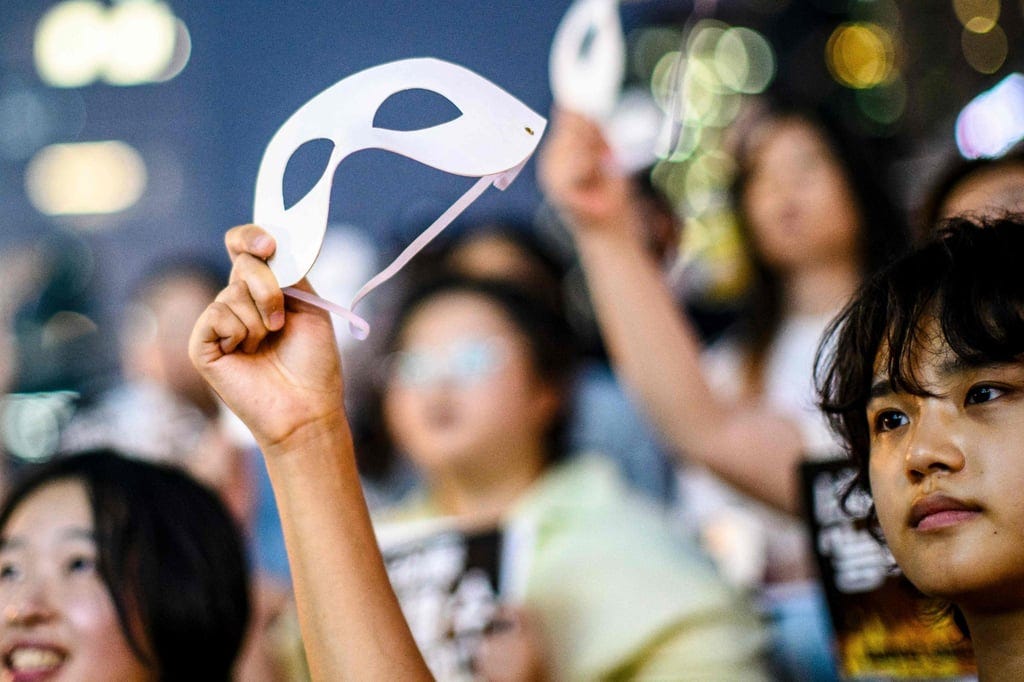











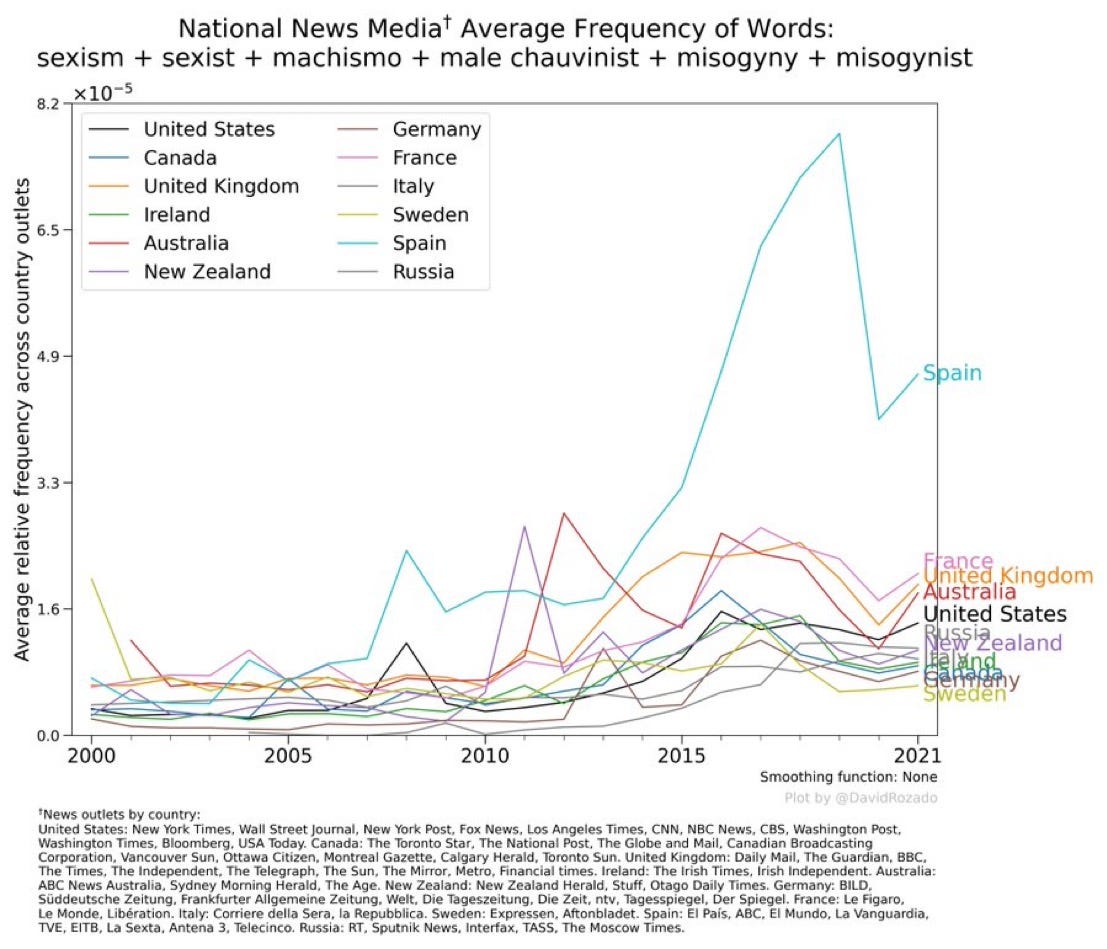
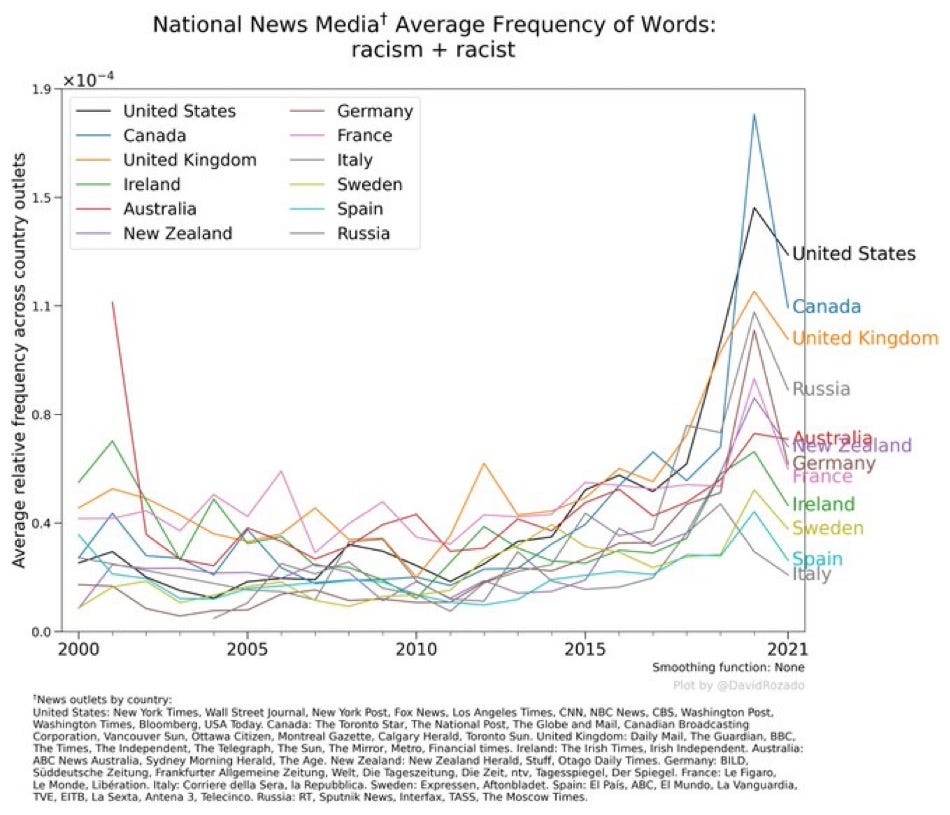
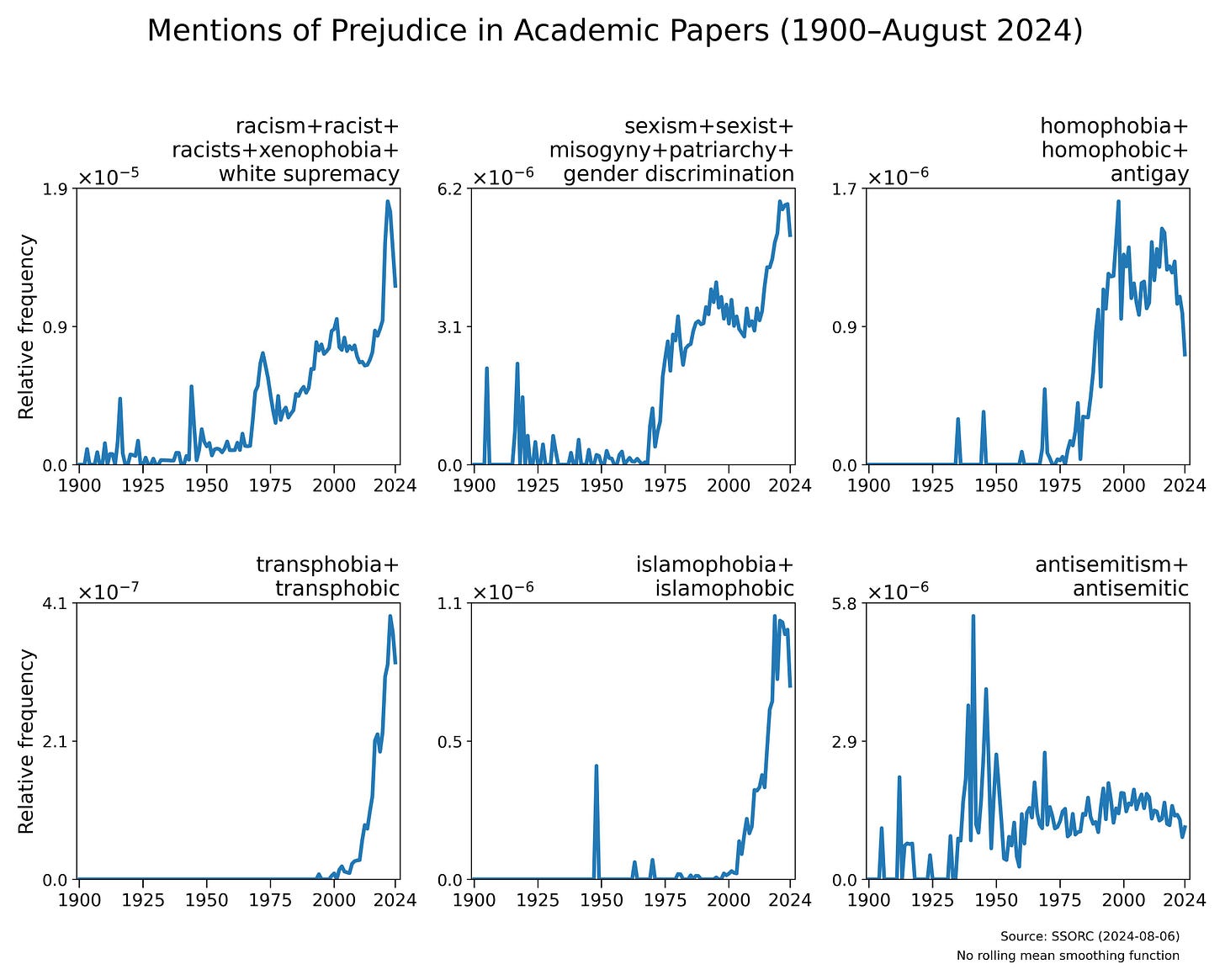
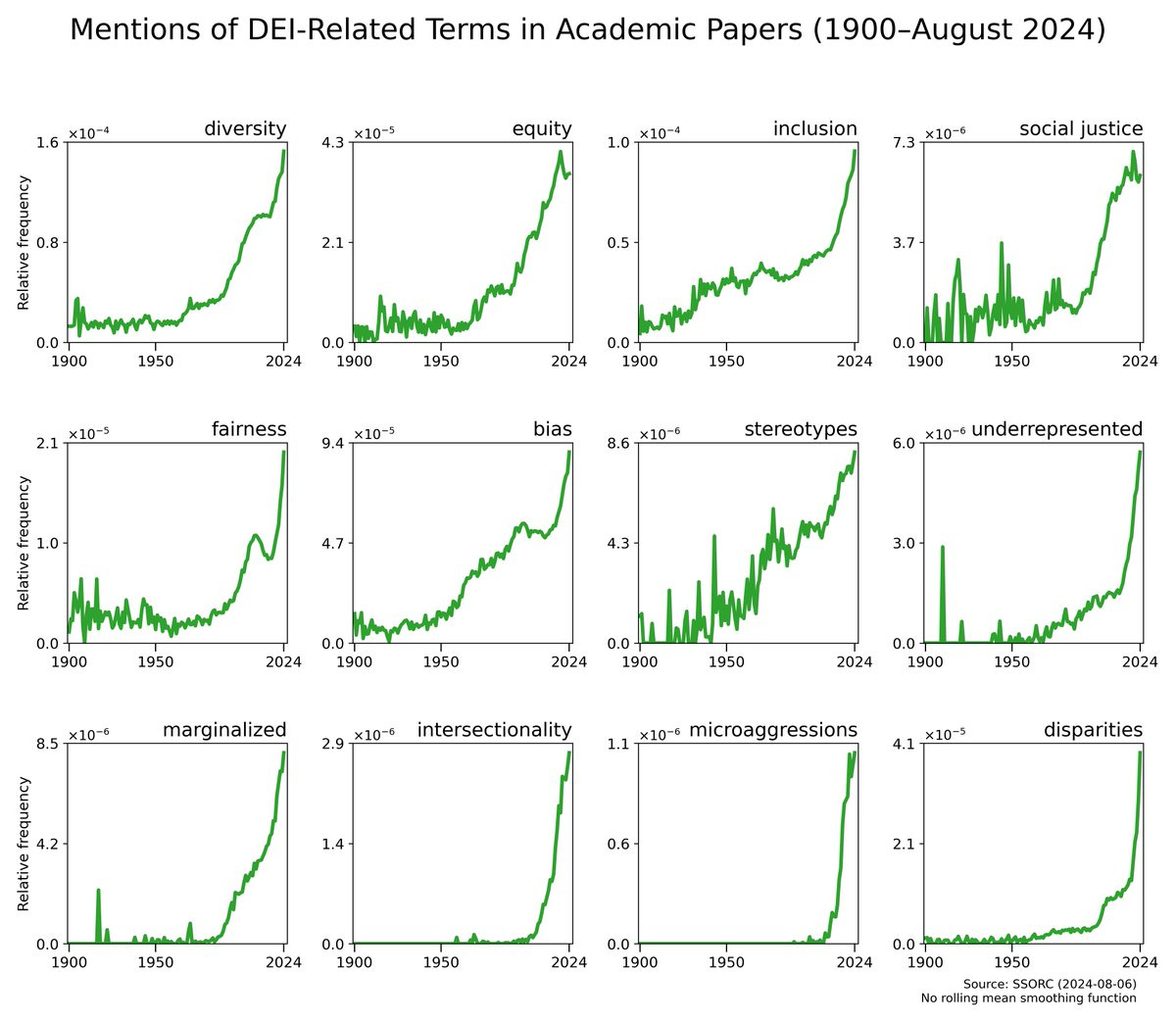

As a married male retiree with successful career behind me and 3 grown up children, I am not in the male grievance group described. Nor is my marriage economically traditional since my feminist minded wife has an ongoing successful career and independent economic security.
This article can be summed up as saying to young men, "get your act together losers."
What it completely fails to capture is nearly every significant change in the labour market (other than gender participation) that has taken place since 1980. So it misses deindustrialisation and the move to service economies, the decline of trade unions, stagnant wage rates, massive and growing inequality, technological advance, the capture of government policy by financial interests, the lack (in the US - until Biden's IRA) of regeneration policies, and above all the unsustainability of the present economic system leading to ecological breakdown.
This analysis casts womens increased economic power in personalised terms as a revolt against patriarchy. It ignores the changes brought about by the combination of birth control, the export of industrial jobs to developing countries and the rise of the service economy which made the sort of work women are content to do, much more available.
The article is a good example of the condemnatory media environment that boys face dominated by feminised agendas, a schooling system run by women with political and behavioural values that favour girls, fatherlessness caused as much as anything, by the economic pressure in men's traditional fields of employment described above, the widespread economic pressure on families generally and the prevalence of drugs and alcohol abuse.
What is feminism? We are told it is a drive for equality. But the feminism of this article is a kind of neo-liberal female triumphalism born of a individualised girl boss outlook devoid of any real sociological insight whose moral
outlook is "I'm alright Jack."
what bothers me so much is that you can write a book an explain why men are so unmarriable, but heavens forbid if you say slightest negative thing against any cohort of women.